
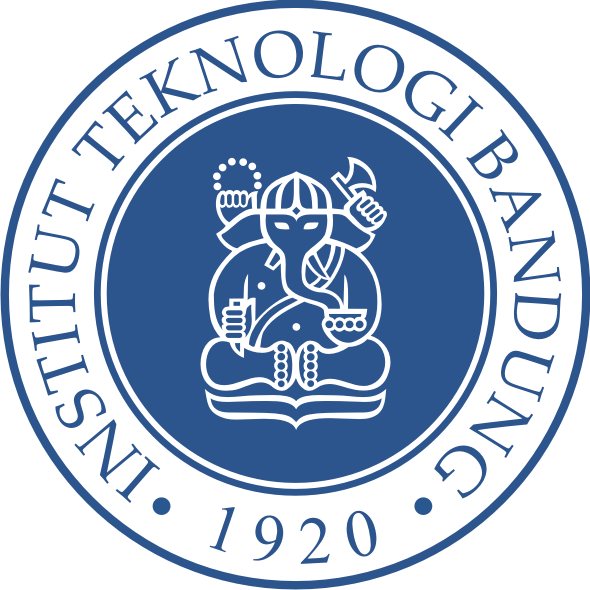
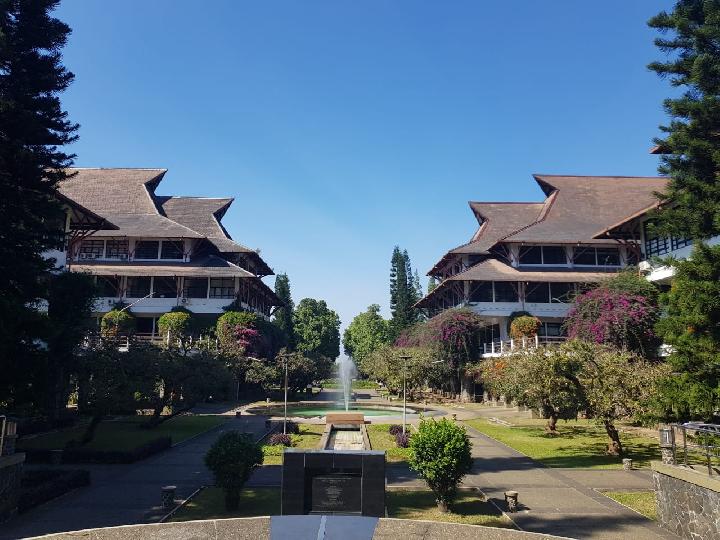
It is worth to give a try
This is the alpha version of the soon to launch “Letter from ITB” prepared by a collaborative work of ITB PR Directorate and WCU team. The idea behind this letter is for ITB leader to maintain communication and update on ITB achievement related to innovation, research, and other relevant activities to the international academic community. Still, there are many rooms for improvements, in which we are keen to receive inputs from your side. The distribution is hence limited to close sphere within ITB management. The next trial version will be released in one month from now. These trials shall facilitate the growth of learning curve among the development team prior to the distribution to ITB counterparts and network. The official version will be launched around early December 2020 along with the formal speech of ITB rector. We again hope to receive comments from your side and look forward to making a significant improvement.
FNU Poerbandono

The two professors are Prof. Dr. Tati Latifah Mengko from the School of Electrical Engineering and Informatics (STEI), who received the "Outstanding Innovation Award" and Prof. Dr. Gede Suantika from the School of Life Sciences and Technology (SITH) who received the "Encouragement Award."
"The Hitachi Global Foundation Asia Innovation Award is our new program to recognize outstanding achievements in research and developments in science and technology, and encourage social implementation by contributing to the SDGs," said the President of Hitachi Global Foundation, Ishizuka Tatsuro, to ITB’s Communications and Public Relations Bureau.
In the 2020 Hitachi Award, Prof. Tati Mengko received an award for developing the NIVA (Non-Invasive Vascular Analyzer) Cardiovascular Disease Early Detection Tool. On the other hand, Prof. Gede Suantika received the award for developing Hybrid Zero Waste (ZWD)-Recirculating Aquaculture System (RAS), a closed aquaculture system for super-intensive shrimp farming and its industrial implementation in sustainable shrimp ponds in Indonesia.
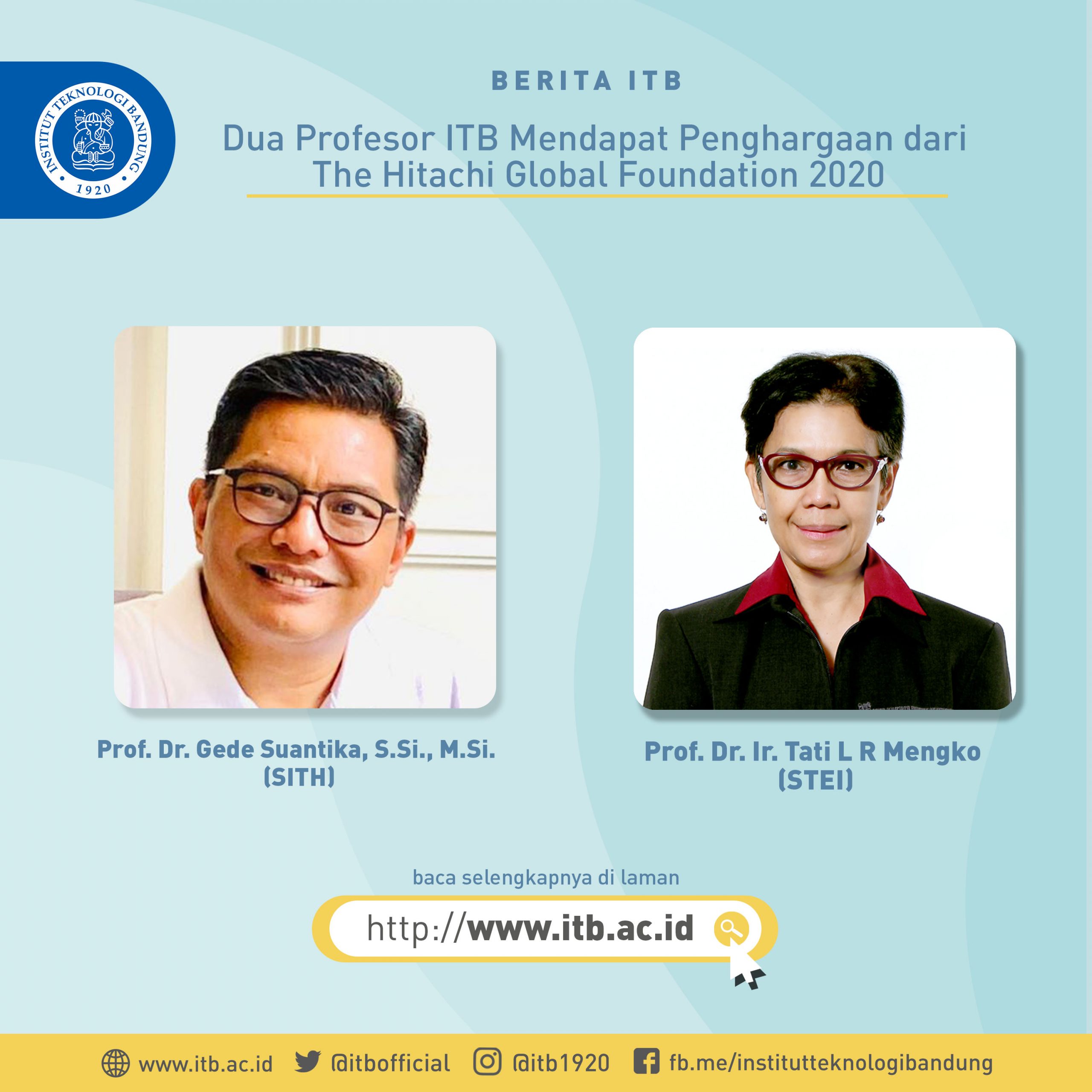
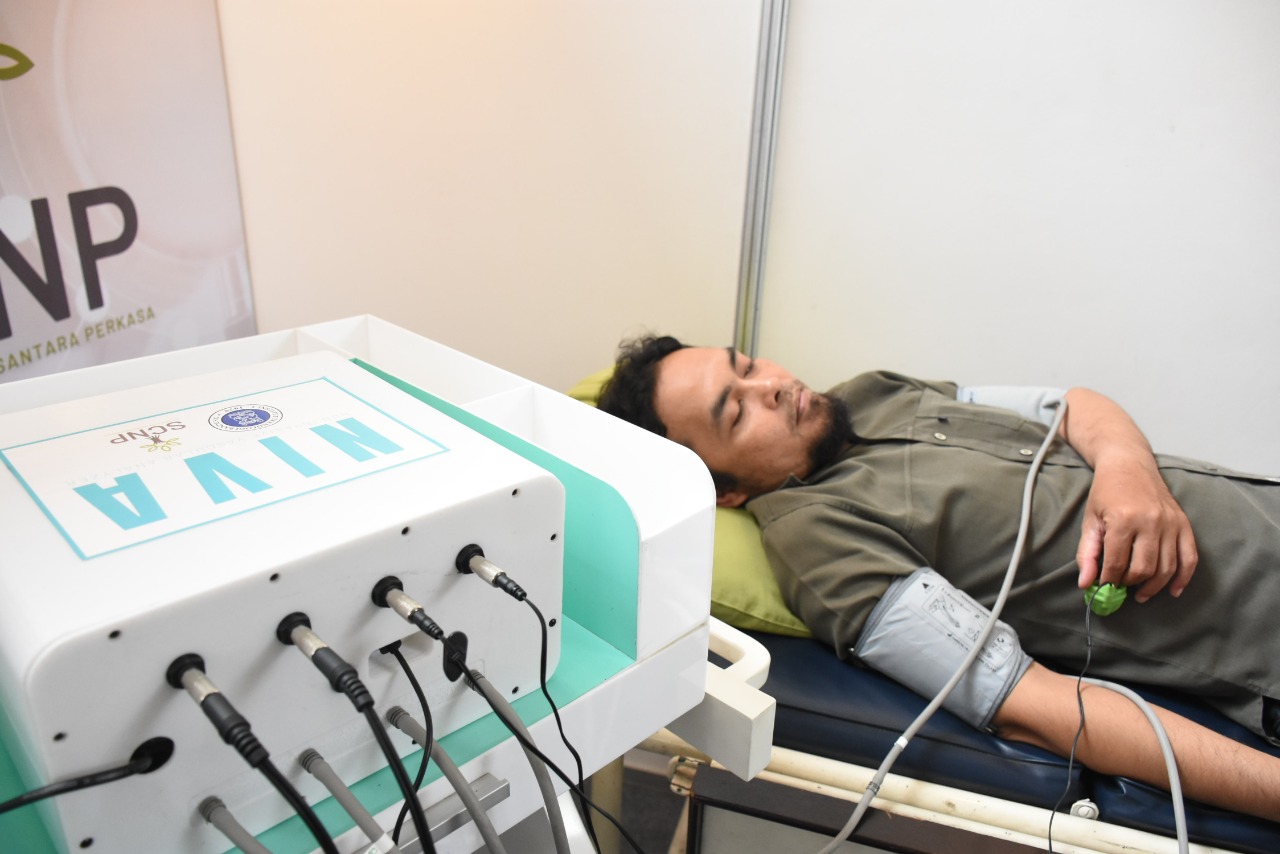

The prototype was developed by the Dhomiri Research Institute in collaboration with the Information and Communications Technology Research Center (PPTIK), the School of Electrical Engineering and Informatics ITB. The research team for the Pre-Diagnosis Application Prototype includes Dr. Ria Lestari Moedomo (Dhomiri Research Institute), Dr. Ary Setijadi Prihatmanto (STEI-ITB), and the NaPas team with the use of MATLAB.
"The goal of making NaPas itself is first, for the pre-diagnosis of covid-corona. Second, is to increase public awareness of COVID-19 by providing facilities for early and independent pre-diagnosis. So, each individual in the community can take early precautions and countermeasures against the next covid-corona attack/spread, "said Dr. Ria Lestari Moedomo when contacted by ITB’s Communications and Public Relations Bureau, Thursday (22/10/2020).
Dr. Ria said that the application could provide comprehensive functions for the public to prevent, reduce, and tackle the spread of COVID-19, especially the pre-diagnosis function and the breath integration with the contact-tracing function from GOOGLE-MAPS and or Cellular Telecommunication providers as well as the breath integration with self-isolation/quarantine function.
The workflow of the pre-diagnosis application is as follows. Once a patient reports, paramedics will arrive at the location and carry out the pre-diagnosis. The patient can also immediately use a mobile phone to do the pre diagnosis. Nasal breath sounds are recorded for 10-15 seconds using a microphone and a recording software on a mobile phone/tablet. The breath sound recording file is sent to a central server via e-mail, or automatically via WhatsApp later on.
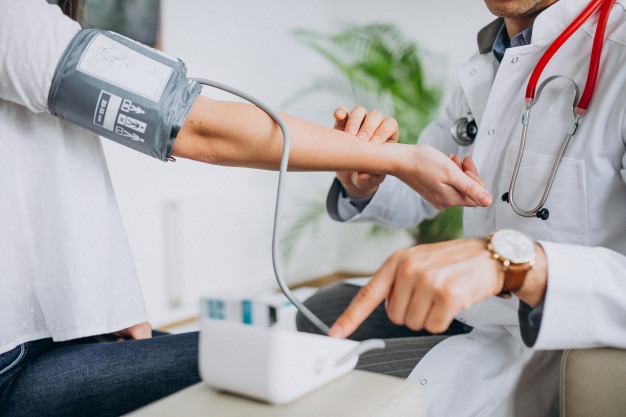


Prof. Daryono is a Professor in the Pharmacochemistry Research Group at Institut Teknologi Bandung’s (ITB) School of Pharmacy. For him, the award from Kemenristekdikti is a form of recognition of expertise and competence in the health sector, specifically in pharmacy, particularly in drug discovery and development.
When talking about the advancement of health science, especially pharmacy as applied science, Prof. Daryono stated that in general it is not much different from other countries that are often used as the benchmarks. Everything that can be done in other countries can also be done in Indonesia as long as the related facilities, infrastructure, and policies exist and are supportive.
"For example, we cannot do (very minimal) frontier research, due to the absence of facilities and the inconsistent financial support," said the graduate of Keio University, Japan.
According to Prof. Daryono, in researching the health sector what is needed is not only the ability to manage and lead the research team to produce innovative publications and works that can be utilized by the public, but it also needs persistence, patience, and consistency with the limited chemicals and reagents that are hard to find. "The point is, we have to find research themes that can be carried out in Indonesia," he said to ITB’s Communication and Public Relations Bureau.
Accordingly, he argues that several things need to be done by the government and ITB to increase research productivity; which are first, the government must have clear policies in developing science and technology, with all the consequences of funding and facilities. Second, funds from the Indonesia Endowment Fund for Education (LPDP) should be used to develop domestic postgraduate programs by recruiting prospective students with excellent academic abilities, such as the Master’s Program of Education Leading to Doctoral Degree for Excellent Graduates (PMDSU).
Continuing to the fourth point, ITB must increase the number of research collaborations with the world's best universities and research institutions. The fifth is that lecturers and researchers should not be preoccupied with administrative and financial reports. The important thing is that accountability and transparency in the use of research funds are maintained. The sixth point is there needs to be enough appreciation for lecturers and researchers who have publications and have written books.
"Everyone has the ability, and the percentage of Indonesians with academic skills above the average is sufficient. Once they are given the opportunity and are facilitated, they will quickly catch up. One shortcoming that must be fixed is the grit, consistency, and discipline, "he advised.
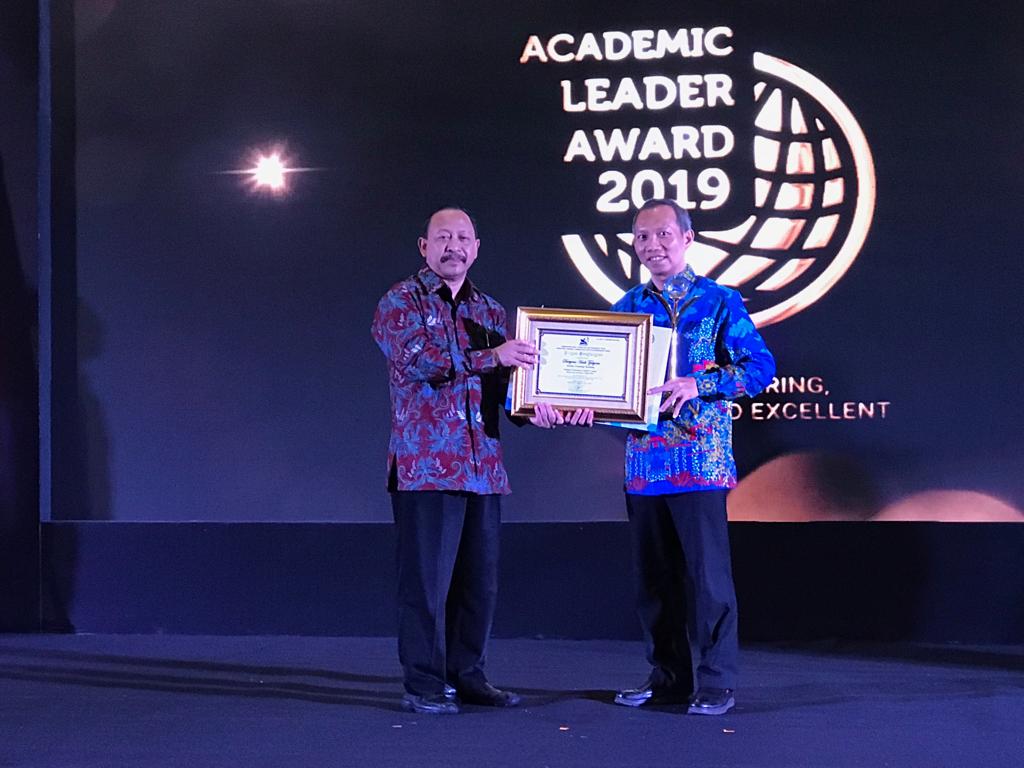

"That's right," said Arifin, when confirmed by CNN Indonesia and Kumparan.
Tutuka was born in Solo, August 26, 1964. Tutuka is a graduate of ITB's Petroleum Engineering degree. Afterwards, he continued his master’s and doctoral degrees at Texas A&M University, United States. Tutuka had held positions at ITB starting from Assistant Vice-Rector for Academic Affairs in 1997 to Vice Dean for Academic Affairs at FTTM ITB from 2011 to 2014.
Outside of his work at ITB, he is also involved in several organizations. Tutuka participated in the IATMI Symposium and Congress Committee for the period 1989-1990, 2002-2004, 2004-2006, and thereafter the IATMI Expert Council for the 2010-2012 and 2012-2014 periods.
Tutuka also served as the Deputy Chairman of the Monitoring Team for the Improvement of Oil and Gas Production at the Ministry of Energy and Mineral Resources in 2011-2012, Member of the Service Council of Engineers-Indonesian Engineers Association (MLIPII), and Chair of the ITB Engineer Professional Program Preparation Team in 2016.


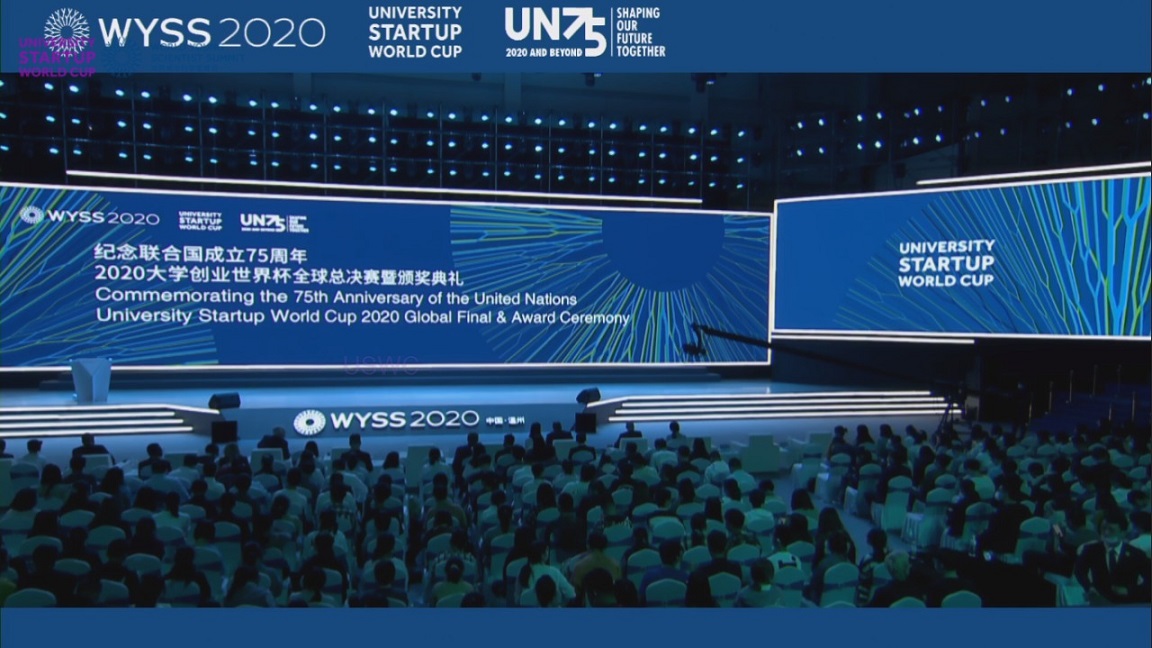
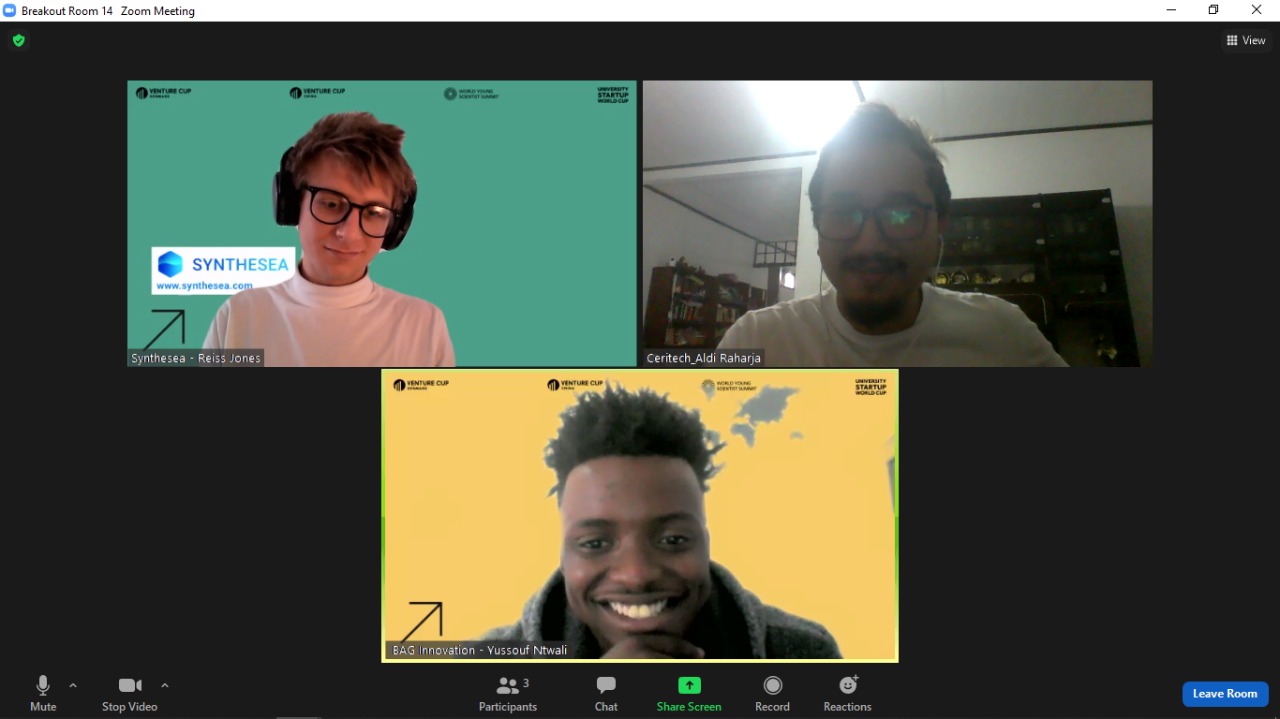
In this competition, the CeriTech Team managed to beat 4,131 applicants from nearly 2,000 universities worldwide. Out of the 75 teams that are qualified for the final round, the CeriTech Team was the only representative of Indonesia. In the final round, which was held on 17-19 October 2020, the CeriTech Team successfully won the Top 3 title in the Information and Communications Technology category, which made ITB and Indonesia proud.
It was not easy for the CeriTech Team to qualify for the final round. The CeriTech team needed to send concepts and documents from the CeriTech startup, which was then assessed by the organizers. After passing the assessments, the CeriTech Team made an online presentation of business ideas (pitching) (which should have been done in China, but the pandemic occurred) in front of the judges and related parties. After the presentation, the CeriTech Team was declared to be qualified for the final round, requiring them to make their final presentation in front of the judges. According to Aldi, even though all activities were carried out online, the activities' atmosphere remained tense because the competitors came from globally renowned universities.
"When you have an idea or concept, especially one that can be useful for others, just do it. Don't overthink. Especially for ITB students who sometimes like to be perfectionists from a technical point of view, whereas perhaps the problem can actually be solved with something that we (ITB’s students) consider as something simple, "said Aldi, as the CEO of CeriTech.